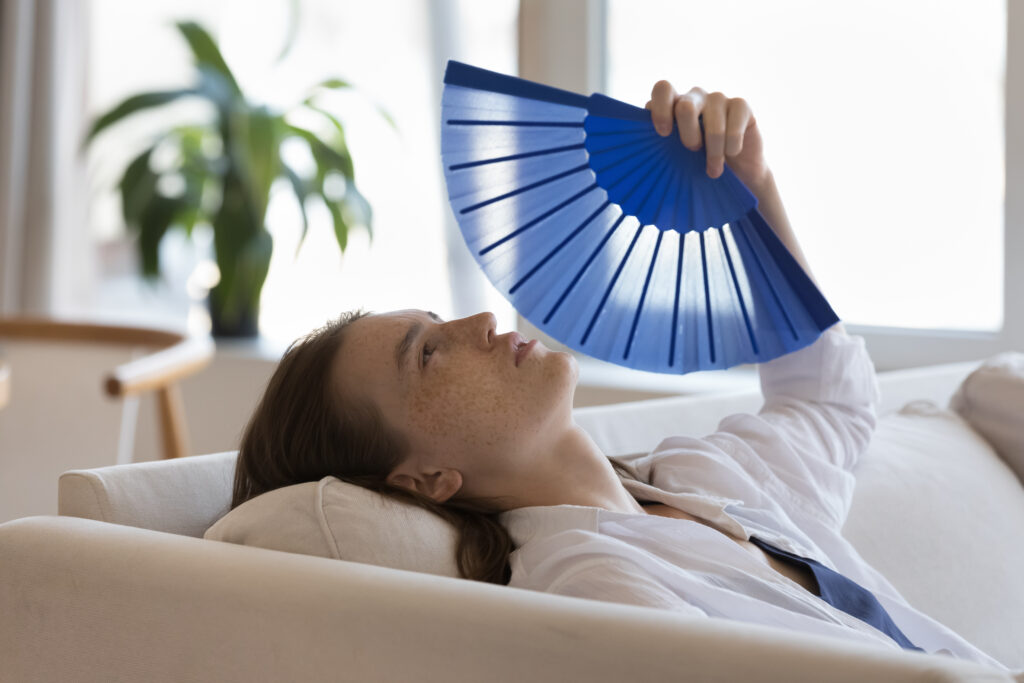Humidity plays a significant role in the comfort, health, and structural integrity of your home. When the humidity level is too high or too low, it can lead to discomfort, damage to your home, and even health problems. However, a properly designed HVAC (Heating, Ventilation, and Air Conditioning) system can help maintain optimal indoor humidity levels, ensuring a more comfortable, healthier living environment.
Here’s a closer look at how humidity affects your home and how an efficient heating and air conditioning system can help.
How High Humidity Affects Your Home
When the humidity level in your home is too high (above 60%), several issues can arise:
- Mold and Mildew Growth
Excess moisture creates an ideal environment for mold and mildew to thrive. These fungi can grow on walls, ceilings, carpets, and even furniture. Mold growth can damage surfaces and pose serious health risks, particularly for individuals with allergies or respiratory issues. Once mold sets in, it can be difficult and costly to remove. - Wood Damage
High humidity causes wood to absorb moisture, which can lead to swelling, warping, or rotting. Wooden floors, furniture, and even the framework of your home can be affected, leading to costly repairs over time. Also, doors can become stuck, and window frames can become misshapen due to swelling. - Uncomfortable Living Environment
When humidity is too high, the air feels heavy and sticky, making it difficult for your body to cool itself. This can leave you feeling hot and sweaty, even when the temperature isn’t excessively high. High humidity also makes it harder for your HVAC system to cool your home efficiently, leading to higher energy bills and overworked equipment. - Increased Allergens
Dust mites and other allergens thrive in humid environments. Excess humidity allows these allergens to multiply, making it harder for individuals with allergies or asthma to breathe comfortably indoors.
How Low Humidity Affects Your Home
While high humidity causes issues, excessively low humidity (below 30%) also presents challenges:
- Dry Skin and Respiratory Irritation
Low humidity can dry out your skin, eyes, and respiratory system. You might experience dry, itchy skin or irritated nasal passages. Over time, prolonged exposure to dry air can even increase the risk of respiratory infections. - Cracks in Wood and Paint
Just as too much moisture can damage wood, too little moisture can cause it to dry out and crack. Low humidity can lead to cracks in wooden furniture, flooring, and even walls. Painted surfaces may also chip or peel due to dryness. - Static Electricity
Dry air is known for increasing static electricity, which can be a nuisance. You might notice more frequent static shocks or the clinginess of clothes and fabrics in your home when the humidity is low.
How a Properly Designed HVAC System Helps Control Humidity
Maintaining the right humidity level in your home is essential for comfort, health, and preserving the condition of your belongings. An efficient HVAC system, designed with humidity control in mind, can help you achieve this balance. Here’s how:
- Dehumidification
During hot, humid months, a well-functioning HVAC system can remove excess moisture from the air. Air conditioners do more than cool the air. They also remove humidity by condensing moisture on the evaporator coils. This process reduces moisture in the air, making your home feel cooler and more comfortable without having to lower the thermostat drastically. If humidity levels are a persistent issue, adding a dedicated dehumidifier to your HVAC system can offer even greater control. - Humidity Control in Winter
In colder months, humidity levels tend to drop. A whole-home humidifier can be integrated into your HVAC system to add moisture to the air, ensuring that your home stays comfortable. This prevents the air from becoming too dry and helps avoid problems like dry skin, respiratory irritation, and damage to wooden surfaces. - Proper Ventilation
A well-designed HVAC system includes proper ventilation, ensuring that fresh air circulates throughout your home. This prevents stale, moist air from accumulating in certain areas like basements, bathrooms, and kitchens, where humidity tends to be higher. Proper ventilation reduces the risk of mold growth and ensures balanced air quality. - Zoning Systems for Better Control
An HVAC system with zoning capabilities allows you to control the temperature and humidity levels in different areas of your home independently. For instance, areas like the kitchen or bathrooms, which tend to produce more humidity, can have customized humidity control settings. This ensures that moisture levels are balanced throughout the house. - Energy Efficiency
A properly sized and designed HVAC system runs more efficiently, helping you maintain humidity levels without overworking your equipment. A system that’s too large or too small for your home won’t be able to effectively control temperature or humidity, leading to inefficiency and potential damage to the system itself.
What Can Homeowners Do to Help Maintain Proper Humidity?
While your HVAC system does the heavy lifting, there are steps you can take as a homeowner to support optimal humidity levels:
- Change Air Filters Regularly: Dirty filters restrict airflow, making it harder for your HVAC system to remove moisture from the air.
- Use Exhaust Fans: In high-moisture areas like kitchens and bathrooms, use exhaust fans to reduce humidity.
- Seal Leaks: Ensure windows, doors, and other areas where moisture could enter your home are properly sealed.
- Invest in a Hygrometer: A hygrometer measures humidity levels, so you can monitor and maintain ideal conditions in your home.
Conclusion
Humidity plays a significant role in the comfort, health, and longevity of your home. Too much or too little can lead to issues ranging from discomfort to damage and health concerns. A properly designed HVAC system, equipped with humidity control features, can help you maintain the perfect balance, ensuring a comfortable living environment and protecting your home from the damaging effects of improper humidity levels.
Investing in a well-maintained HVAC system is not just about controlling temperature—it’s about optimizing your home’s overall environment to enhance comfort, health, and long-term durability.


